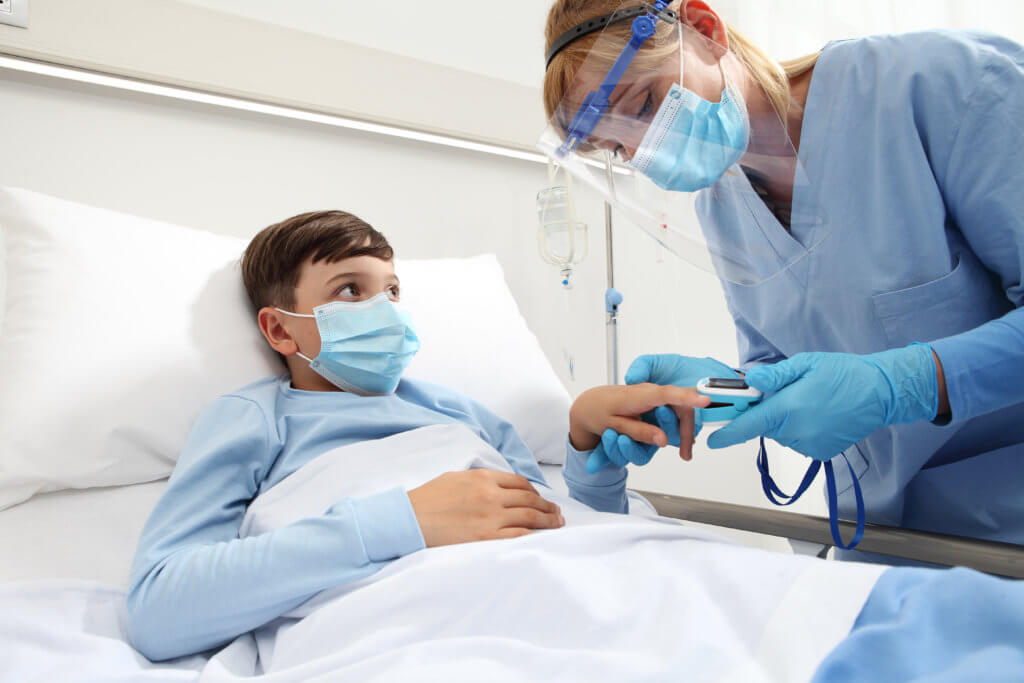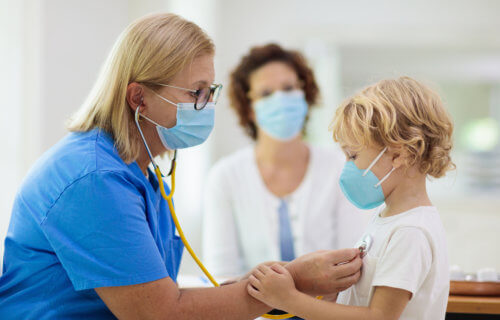LONDON — Wearing masks in hospitals appears to have had little impact on the spread of COVID-19 during the Omicron wave, a new study reveals. Researchers in the United Kingdom note that mask wearing became part of the essential control measures to stop COVID transmission throughout the pandemic. However, the latest data hints that it may not be as beneficial as people previously thought when fighting against the virus’s variant.
The team undertook the study in St George’s Hospital, a large hospital in southwest London, during the first 10 months of the Omicron wave between December 2021 and September 2022. Across the U.K.’s National Health Service, officials introduced a mask mandate for staff in June 2020, specifying the use of type IIR, fluid-resistant surgical face masks by all staff and visitors. The NHS mask mandate remained in place in clinical areas in hospitals until June 2022.
During the first phase of the study, between Dec. 4th and June 1st, all staff and visitors had to wear face masks in both clinical and non-clinical areas. In phase two, between June 2nd and Sept. 10th, surgical mask-wearing policy ended for the majority of the hospital but remained for staff in a few high-risk wards.
The team found that in June 2022, the removal of the mask policy did not show a link to a significant change in the rate the infections passing throughout the hospital. The infection rate was no higher than when masks were mandatory.
There was also no change in the infection rate during the time when the mask-wearing policy was removed in June 2022 and the end of the study in September 2022. Even the group who continued wearing masks found no immediate or delayed change in infection rate.

“Our study found no evidence that mandatory masking of staff impacts the rate of hospital SARS-CoV-2 infection with the Omicron variant,” says lead author Dr. Ben Patterson from St George’s University Hospitals NHS Foundation Trust in a media release. “That doesn’t mean masks are worthless against Omicron, but their real-world benefit in isolation appears to be, at best, modest in a healthcare setting.”
“Many hospitals have retained masking at significant financial and environment cost and despite the substantial barrier to communication,” adds senior author Dr. Aodhan Breathnach. “We hope this empirical evidence can help inform a rational and proportionate mask policy in health services.”
Researchers are presenting their findings at the European Congress of Clinical Microbiology & Infectious Diseases 2023, taking place in Copenhagen.
South West News Service writer Alice Clifford contributed to this report.


All “masks” aren’t equal. From the very beginning it was known that N95 “masks” (respirators) were useful against this virus. Using “mask” as a broad definition hides that reality. Also, no mask works when it’s uses a chin strap or worn below the nose. Yet, most studies treat those cases as the equivalent of “wearing a mask.”
Absolutely!
The other variable is: Do the employees wear masks in public on their own time?